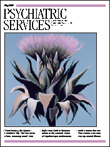My Fundamentalist Education: A Memoir of a Divine Girlhood
In My Fundamentalist Education: A Memoir of a Divine Girlhood , Christine Rosen uses an affectionate style to describe her early years in a Christian Fundamentalist school. Now a public policy fellow, Ms. Rosen writes a memoir that illustrates how the ethics and values fervently enforced during her early schooling shaped the questions that captured her childhood imagination. For a reader who is curious about the impact of religious culture on a child's development, this book offers an opportunity to glimpse this world through the retelling of childhood memories of events, thoughts, and emotions.
Even as she begins school, Christine receives strong messages about the threats in the world around her. "I was to learn to arm myself with knowledge of the Bible to protect myself against the dark forces at work in the world, forces that seemed vague and far away as a kindergartner." She also learns of her responsibilities to bring others to religion, and she ardently takes to this missionary role; by third grade she is gravely concerned when she realizes that all of her witnessing yields no more than annoyance from her playmates. The rapture is an ever-present threat; in addition to the usual childhood pressures to meet their parents' rules and expectations, these children are asked regularly if they will be ready if the rapture comes that day.
As the memoir chronicles Christine's growth, she struggles to make sense of a stringent value system that prohibits many of the ideas and indulgences common in the world at large. Warned against everything from the non-Creationist teachings of geology to subliminal messages in rock music, Christine describes her thoughts as she weighs her instincts that science could be used to counter her fears against her belief that, by going against what she has been taught, she could be simply succumbing to the world's temptations.
In My Fundamentalist Education , the reader watches Christine grow from a child missionary who is whole-heartedly certain in her faith to an inquisitive young girl who questions the edicts set out before her. In the closing of her book, we learn that Christine is no longer a Fundamentalist but rather a student of history and a public policy fellow. She expresses gratitude for her early education and the shelter it provided her through her early years; her respect for the value of this education remains clear throughout her book.
This warmly told memoir is of value not only to people who would like to glimpse the day-to-day world of Fundamentalist teachings but also to anyone curious about how strongly held beliefs are integrated into a child's development.



